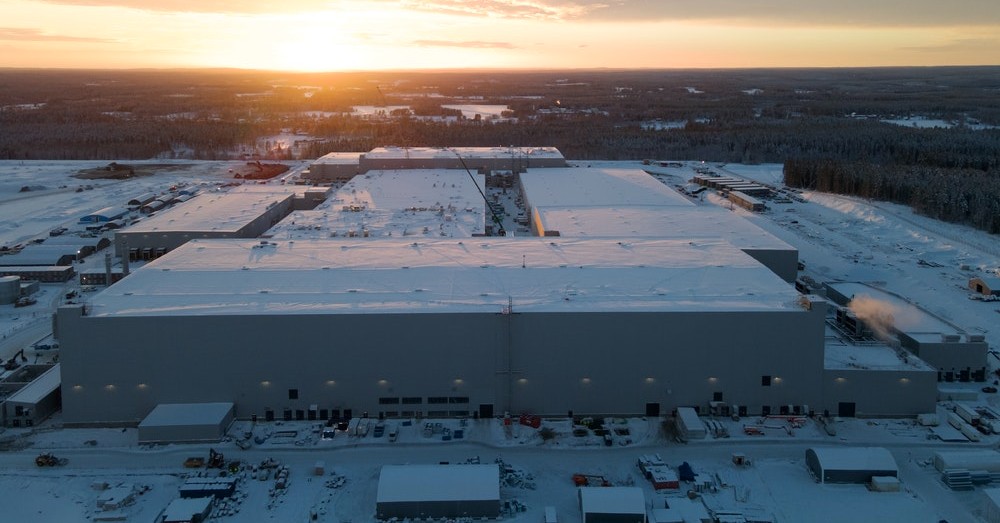
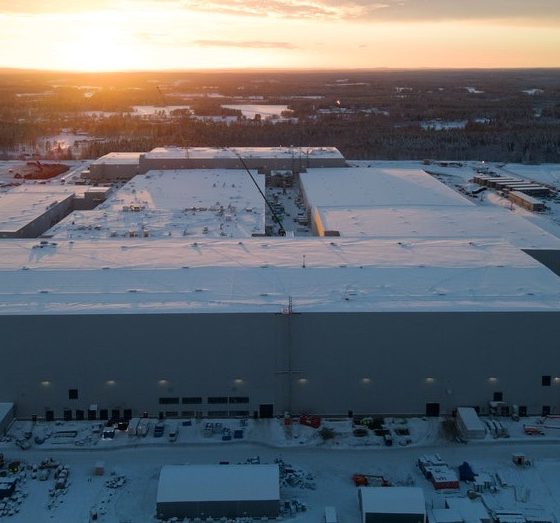
News
Northvolt announces new €4 Billion Battery Gigafactory in Northern Germany
Swedish battery company Northvolt announced today that it will build a new €4 Billion battery Gigafactory in Northern Germany in the city of Heide. The plant, known as “Northvolt Drei,” will be the company’s third production facility of at least 60 gigawatts of annual capacity and its first outside of Sweden.
Northvolt CEO Peter Carlsson said the area offered everything a battery company would want: support from local authorities and plenty of talent to pick from. “In Heide, we really found a spot where we could combine all our requirements: attracting talent and feeling the support for our aspiration of building the world’s greenest batteries,” Carlsson said. “With the energy mix in Schleswig-Holstein, with the offshore wind coming in, but also with the linkage to Denmark and Norway in the energy feed, we saw that this is probably the best spot for us in Germany to build this set-up.”
In December, Northvolt became the first European company to design, develop, and build a lithium-ion battery cell entirely in Europe. The cell was prismatic and not cylindrical as many EV enthusiasts are familiar with, like in Tesla’s vehicles. Prismatic cells consist of large sheets of anodes, cathodes, and separators sandwiched, rolled up, and pressed to fit into a metallic or hard-plastic housing in cubic form, according to AllAboutCircuits.
Northvolt Ett’s first Prismatic Lithium-ion cell. (Credit: Northvolt)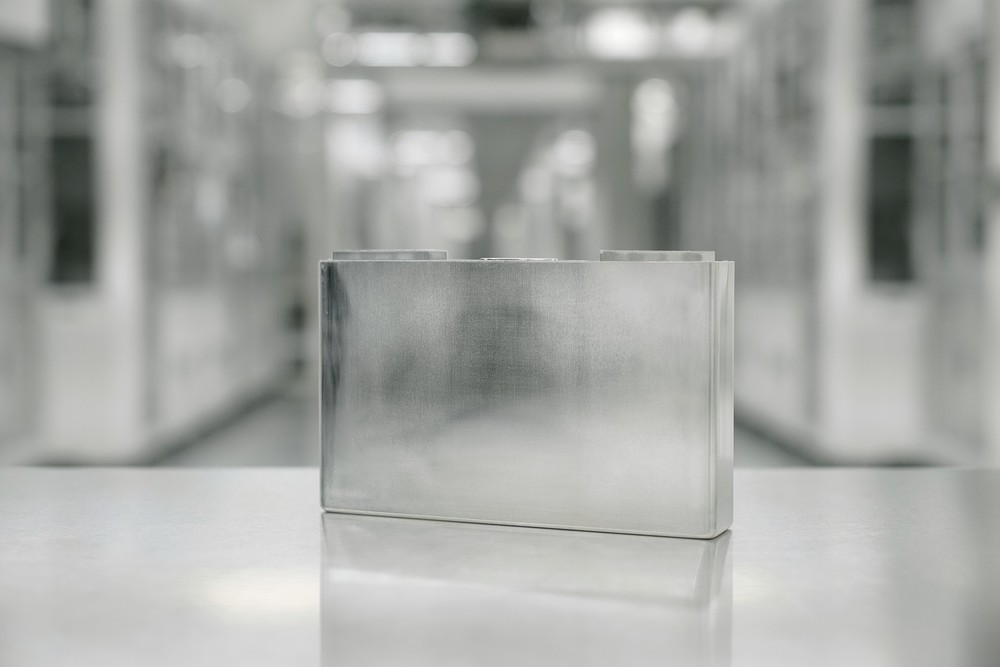
Germany is Europe’s leading EV battery production location with 485 gigawatt hours of capacity in both existing and planned facilities, Northvolt said in a statement citing Handelsblatt. With big-name EV players like Tesla committing to a massive Gigafactory facility near Berlin, which is set to launch in just one week, other battery makers have flocked to the region. CATL, SVOLT, and PSA Group have all announced projects in the region. Tesla also plans to build its 4680 cells in Germany in the coming years.
German authorities, including the country’s Trade and Invest group, voiced their support for Northvolt’s new facility.
“We welcome Northvolt’s decision to come to Heide, which gives the company not only proximity to Europe’s largest automotive market but also access to Germany’s highly skilled workforce as well,” Germany Trade & Invest (GTAI) CEO Robert Hermann said. “Northvolt is a great addition to the growing battery production landscape here in the heart of Europe.”
Heide is located near Hamburg, a large metropolitan area that has several technical colleges and universities known for its expertise in engineering. Additionally, Hamburg had the reputation of a city but also has a rural feel, as plenty of surround towns offer considerable landmass, which is suitable for manufacturing projects. Northvolt said Heide offered “the space required to establish a battery plant of sufficient size to leverage the economies of scale in production.”
“Germany Trade & Invest has been working together closely with Northvolt since late 2019 to find a site for the company’s German production facility, and we encouraged them to investigate sites in the north of the country as well as other regions because of the availability of renewable energy on Germany’s coasts,” GTAI automotive expert Stefan di Bitonto said. “Northvolt’s planned gigafactory in Heide is a further indication that the automotive industry in Germany is expanding beyond its traditional strongholds, as mobility is rethought during Germany’s transition to clean energy.”
I’d love to hear from you! If you have any comments, concerns, or questions, please email me at joey@teslarati.com. You can also reach me on Twitter @KlenderJoey, or if you have news tips, you can email us at tips@teslarati.com.

Elon Musk
Elon Musk to attend 2026 World Economic Forum at Davos
The Tesla CEO was confirmed as a last-minute speaker for a session with BlackRock CEO Larry Fink.
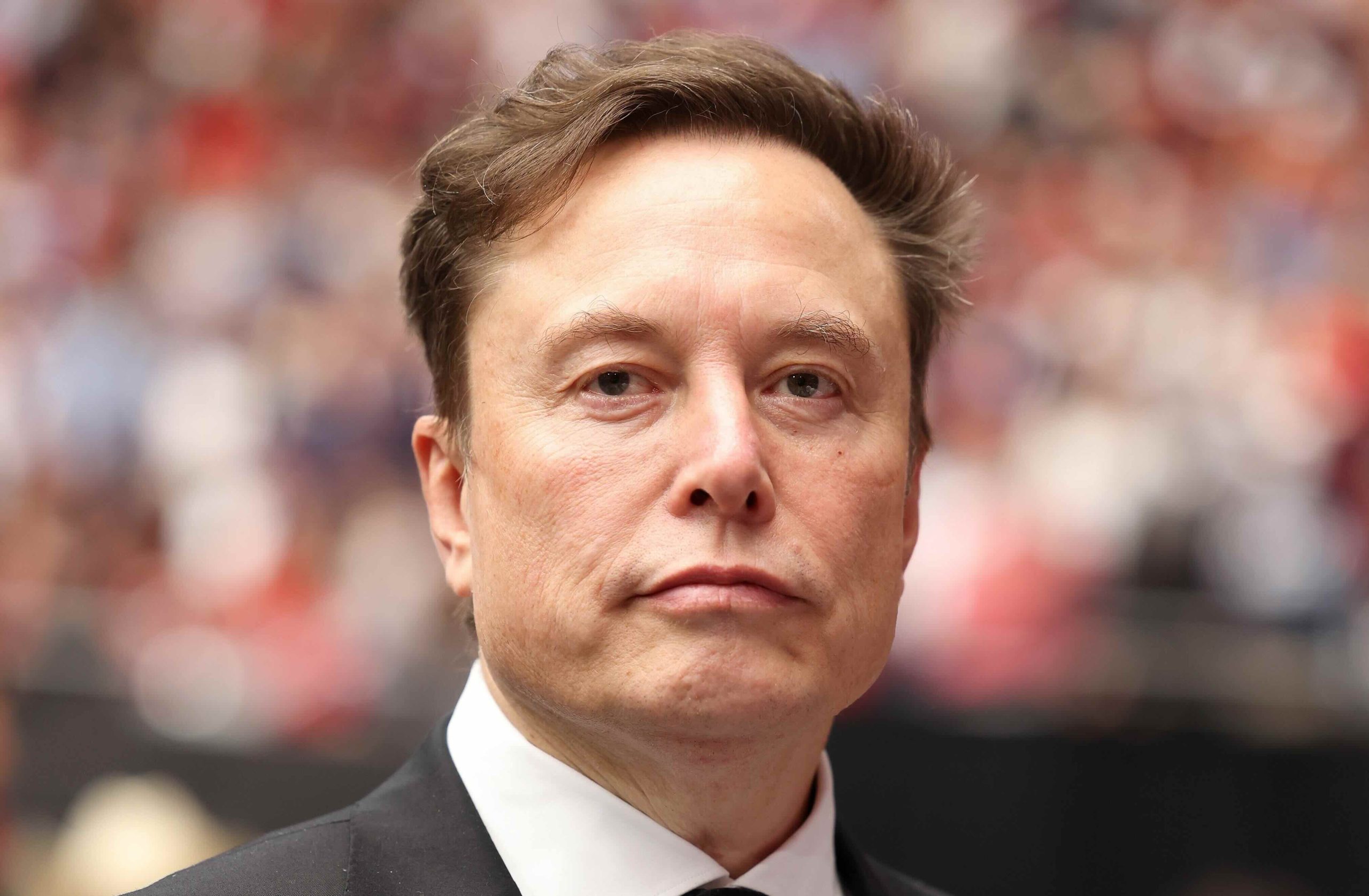
Elon Musk is poised to attend the 2026 World Economic Forum in Davos. The Tesla CEO was confirmed as a last-minute speaker for a session with BlackRock CEO Larry Fink, signaling a thaw in Musk’s long-strained relationship with the event.
A late addition
Organizers of the World Economic Forum confirmed that Elon Musk was added shortly before the event to a Thursday afternoon session, where he was scheduled to speak with Fink, as noted in a Bloomberg News report. Musk’s upcoming appearance marks Musk’s first participation in the forum, which annually draws political leaders, business executives, and global media to Davos, Switzerland.
Musk’s attendance represents a departure from his past stance toward the event. He had been invited in prior years but declined to attend, including in 2024. His upcoming appearance followed remarks from his political ally, Donald Trump, who addressed the forum earlier in the week with a wide-ranging speech.
A previously strained relationship
Musk had frequently criticized the World Economic Forum in the past, describing it as elitist and questioning its influence. In earlier posts, he characterized the gathering as “boring” and accused it of functioning like an unelected global authority. Those remarks contributed to a long-running distance between Musk and WEF organizers.
The forum previously said Musk had not been invited since 2015, though that position has since shifted. Organizers indicated last year that Musk was welcome amid heightened interest in his political and business activities, including his involvement in the Trump administration’s Department of Government Efficiency (DOGE). Musk later stepped away from that role.
Despite his friction with the World Economic Forum, Musk has remained central to several global events, from SpaceX’s provision of satellite internet services in geopolitically sensitive regions through Starlink to the growing use of xAI’s Grok in U.S. government applications.
News
Tesla states Giga Berlin workforce is stable, rejects media report
As per the electric vehicle maker, production and employment levels at the facility remain stable.
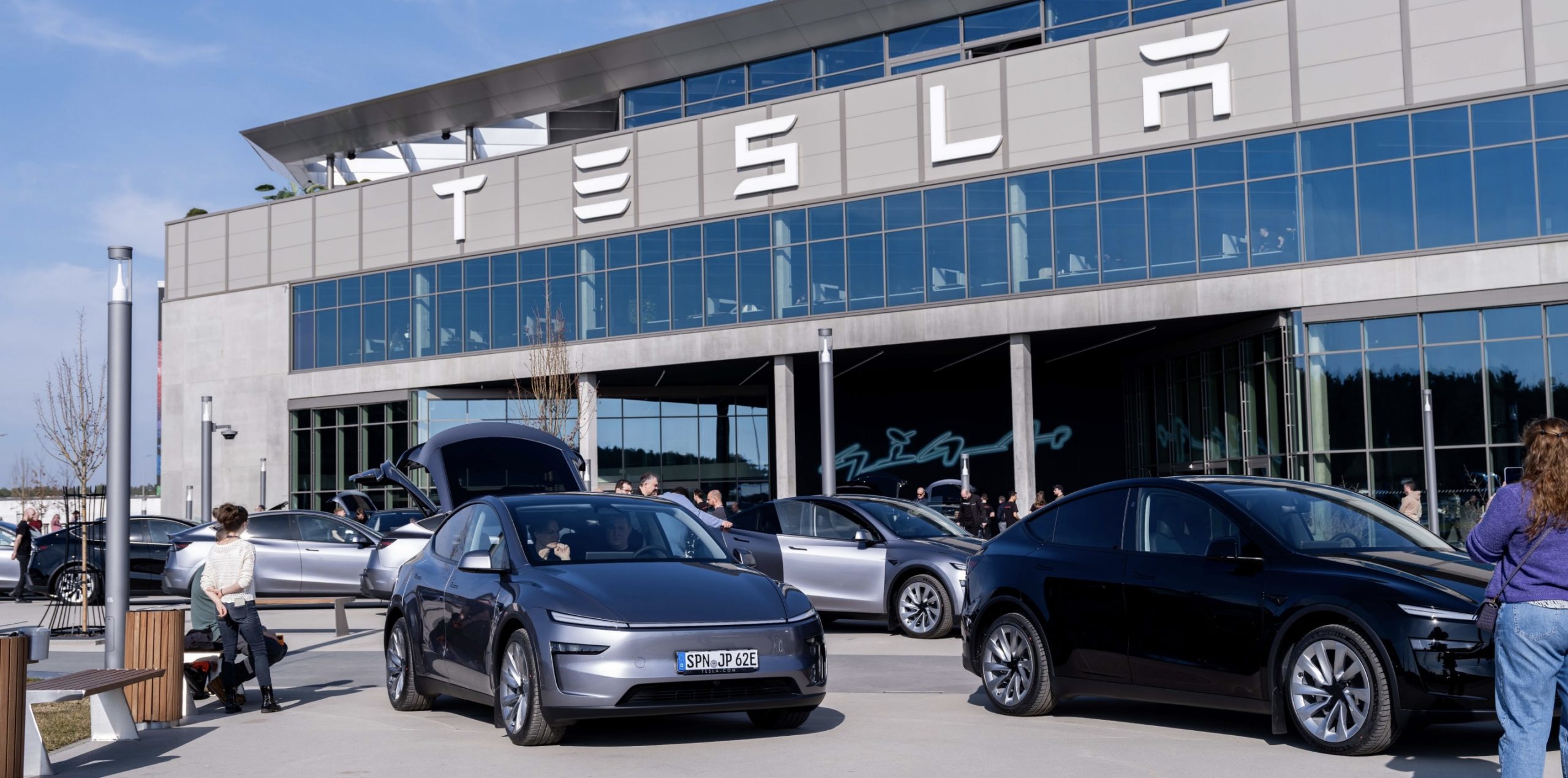
Tesla Germany has denied recent reports alleging that it has significantly reduced staffing at Gigafactory Berlin. As per the electric vehicle maker, production and employment levels at the facility remain stable.
Tesla denies Giga Berlin job cuts report
On Wednesday, German publication Handelsblatt reported that Tesla’s workforce in Gigafactory Berlin had been reduced by about 1,700 since 2024, a 14% drop. The publication cited internal documents as its source for its report.
In a statement to Reuters, Tesla Germany stated that there has been no significant reduction in permanent staff at its Gigafactory in Grünheide compared with 2024, and that there are no plans to curb production or cut jobs at the facility.
“Compared to 2024, there has been no significant reduction in the number of permanent staff. Nor are there any such plans. Compared to 2024, there has been no significant reduction in the number of permanent staff. Nor are there any such plans,” Tesla noted in an emailed statement.
Tesla Germany also noted that it’s “completely normal” for a facility like Giga Berlin to see fluctuations in its headcount.
A likely explanation
There might be a pretty good reason why Giga Berlin reduced its headcount in 2024. As highlighted by industry watcher Alex Voigt, in April of that year, Elon Musk reduced Tesla’s global workforce by more than 10% as part of an effort to lower costs and improve productivity. At the time, several notable executives departed the company, and the Supercharger team was culled.
As with Tesla’s other factories worldwide, Giga Berlin adjusted staffing during that period as well. This could suggest that a substantial number of the 1,700 employees reported by Handelsblatt were likely part of the workers who were let go by Elon Musk during Tesla’s last major workforce reduction.
In contrast to claims of contraction, Tesla has repeatedly signaled plans to expand production capacity in Germany. Giga Berlin factory manager André Thierig has stated on several occasions that the site is expected to increase output in 2026, reinforcing the idea that the facility’s long-term trajectory remains growth-oriented.
News
Elon Musk gets brash response from Ryanair CEO, who thanks him for booking increase
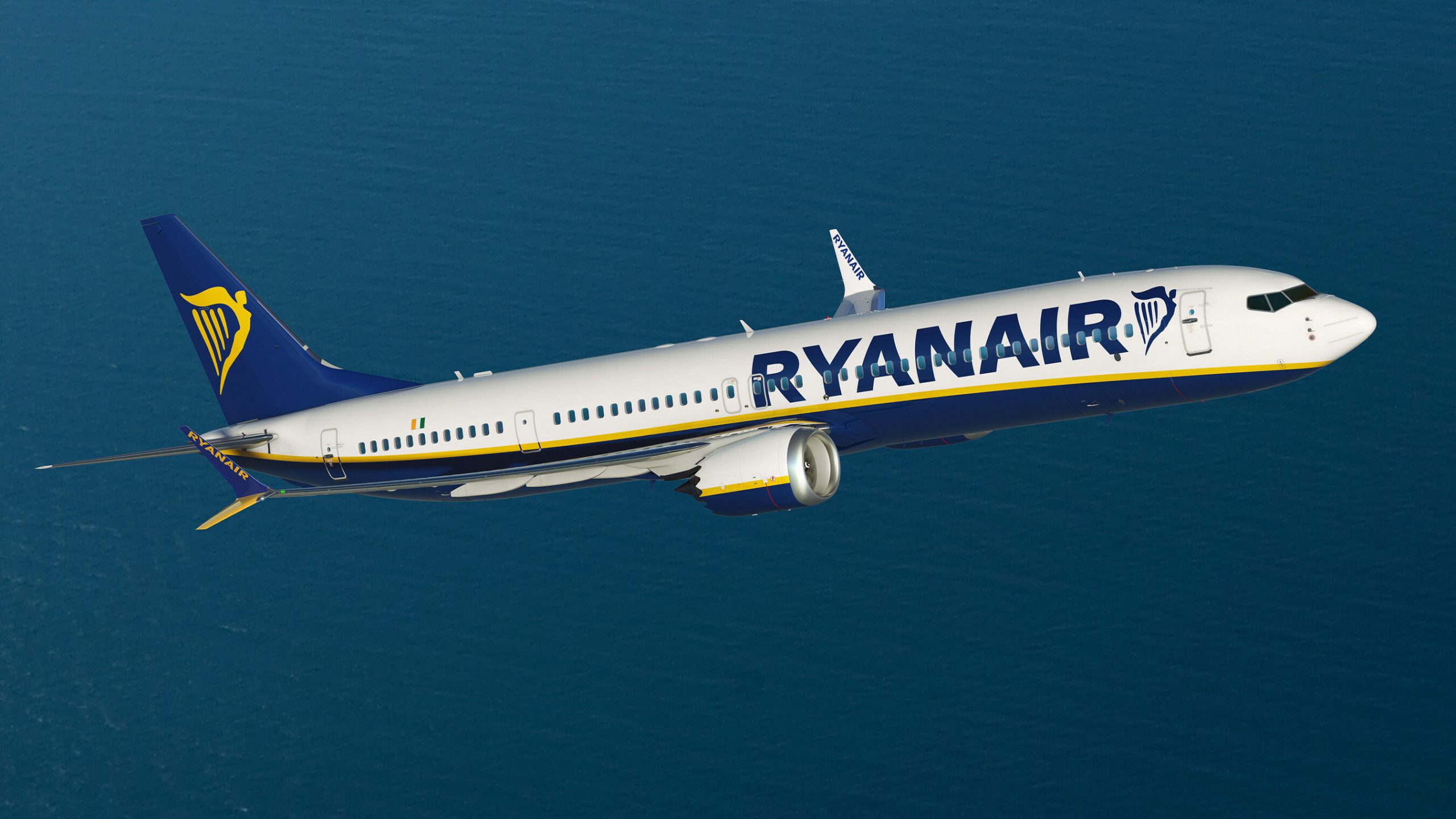
Elon Musk got a brash response from Ryanair CEO Michael O’Leary, who said in a press conference on Wednesday afternoon that the Tesla frontman’s criticism of the airline not equipping Starlink has increased bookings for the next few months.
The two have had a continuing feud over the past several weeks after Musk criticized the airline for not using Starlink for its flights, which would enable fast, free, and reliable Wi-Fi on its aircraft.
Tesla CEO Elon Musk trolls budget airline after it refuses Starlink on its planes
Musk said earlier this week that he was entertaining the idea of purchasing Ryanair and putting someone named Ryan in charge, which would oust O’Leary from his position.
However, the barbs continued today, as O’Leary held a press conference, aiming to dispel any beliefs about Starlink and its use case for Ryanair flights, which are typically short in length.
O’Leary said in the press conference today:
“The Starlink people believe that 90% of our passengers would happily pay for wifi access. Our experience tells us less than 10% would pay; He (Elon) called me a retar*ed twat. He would have to join the back of a very, very long queue of people that already think I’m a retar*ed twat, including my four teenage children.”
He then went on to say that, due to Musk’s publicity, bookings for Ryanair flights have increased over the past few days, up 2 to 3 percent:
“But we do want to thank him for the wonderful boost in publicity. Our bookings are up 2-3% in the last few days. So thank you to Mr. Musk, but he’s wrong on the fuel drag. Non-European citizens cannot own a majority of European airlines, but if he wants to invest in Ryanair, we think it would be a very good investment.”
O’Leary didn’t end there, as he called Musk’s social media platform X a “cesspit,” and said he has no concern over becoming a member of it. However, Ryanair has been very active on X for several years, gaining notoriety for being comical and lighthearted.
🚨 Ryanair CEO’s comments on X and Starlink today at the planned presser.
Strange comments here, it just feels like it’s time to end all this crap https://t.co/NYeG95bM82
— TESLARATI (@Teslarati) January 21, 2026
The public spat between the two has definitely benefited Ryanair, and many are calling for it to end, especially those who support Musk, as they see it as a distraction.
Nevertheless, it is likely going to end with no real movement either way, and is more than likely just a bit of hilarity between the two parties that will end in the coming days.








